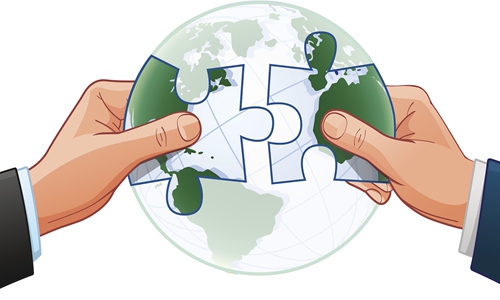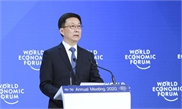
Photo: VCG
The panic, fear and hysteria surrounding the now rampant coronavirus are unprecedented. And in a world driven by globalization, the outbreak has soon sparked debate about how it will change global politics.The worldwide epidemic has exposed the flaws in globalization. Conspiracies go fast on the internet and countries play the blame game to shirk responsibility for their tardy response to the outbreak. The global supply chain risks being disrupted because of the halt in production in China - a global supply chain base - where the coronavirus outbreak first took place. We also see the difficulties in wiping out the virus because the world is so interconnected and the flow of people across borders is so common and frequent.
The political effect is taking shape. As the coronavirus mutates into a global crisis, there is a clash between the Chinese system and the Western system and pundits have begun discussing which system can better cope with such a crisis - a centralized government that is able to mobilize its people and adopt stringent and efficient measures, or the Western liberal system that is hesitant to impose restrictions on people but whose containment measures are less effective?
In Europe, questions abound about unity of the EU as many member states are baffled by the virus situation on their own soil and can hardly lend a helping hand to the others. The EU is now concerned about a threat to the Schengen border-free travel zone, which has already been strained by the continent's refugee crisis.
Meantime, in the US, how vulnerable would President Donald Trump be in the face of the coronavirus outbreak and how it will affect US politics and the presidential election re-mains to be seen.
But the question is, in the wake of changing global politics, what should countries do? Since the process of globalization involved many irreversible aspects such as enhanced trade, greater mobility of labor and capital, and the increased interdependence of economies, de-globalization is not a feasible option.
Perhaps the only solution is cooperation, although some countries, notably the US, did not set a good example. The withdrawal of the US from many world organizations and its decoupling policy toward China has disrupted the international will for cooperation.
But in any future case like the coronavirus-initiated public health crisis, no country is alone. Establishing trust and cooperation internationally among governments and citizens is important before a crisis strikes. The Ebola outbreak has made a very convincing case for global cooperation. Unfortunately, many countries have not learned their lesson.
China has adopted a cooperative approach in the global fight against the virus. While it minds its own business, it has offered medical materials to other virus-hit countries such as South Korea and Iran. It has also sent a team of specialists and provided humanitarian assistance to Italy in combating the virus. Hopefully, the coronavirus outbreak can be the new catalyst for international cooperation. The de-globalization sentiment that we have felt from the outbreak is just a test that globalization needs to undergo before it becomes more extensive and profound.




